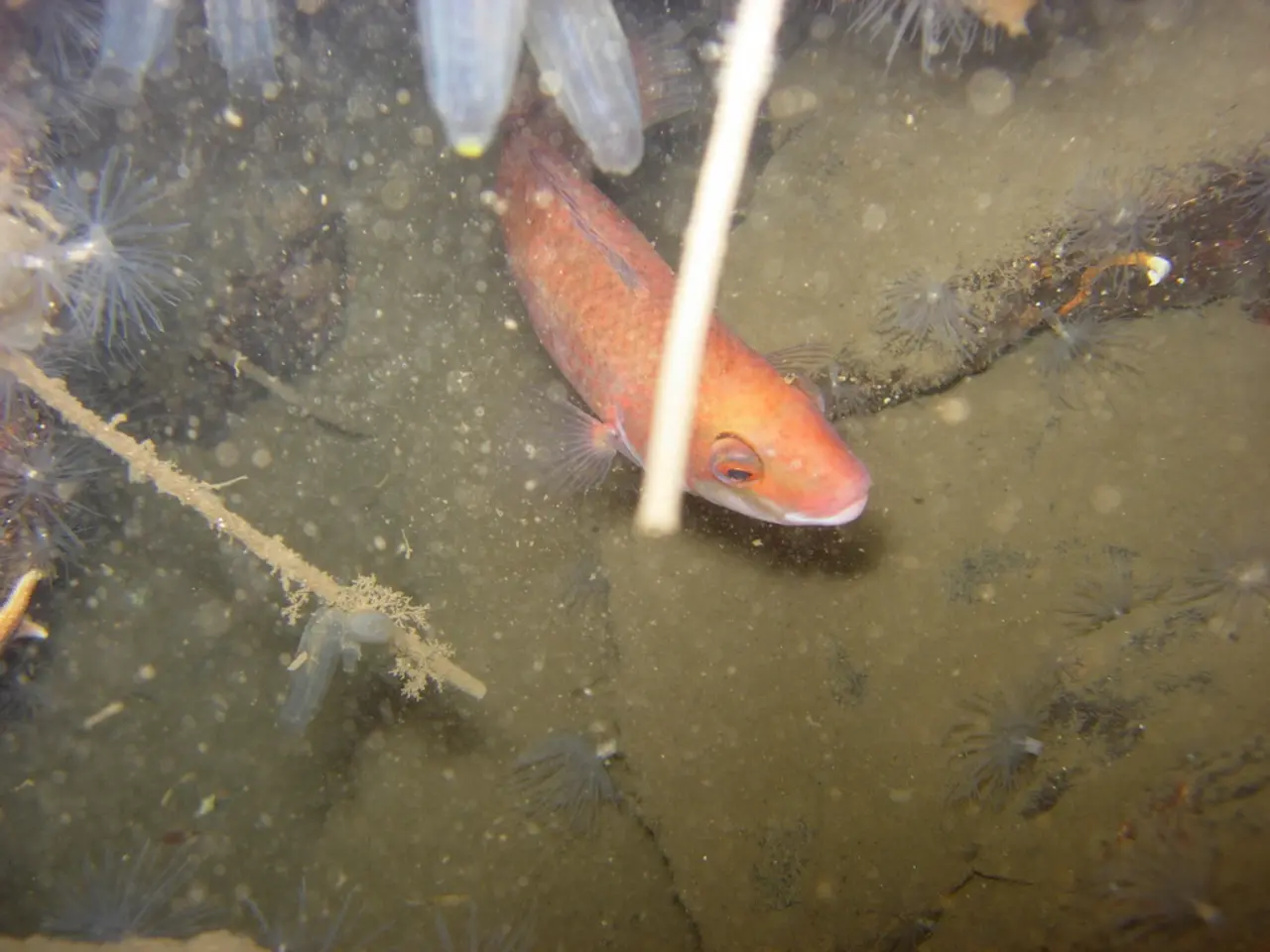Algae-based fish substitutes offer an iodine-rich food alternative.
In the realm of plant-based diets, consumers are increasingly turning to vegan fish and seafood substitutes. However, a recent study has shed light on the iodine content of these alternatives, a nutrient crucial for thyroid function.
The recommended daily maximum intake of iodine is 600 micrograms from all sources combined. Yet, the iodine content in these plant-based alternatives varies significantly.
For instance, canned tuna, a popular choice, contains significantly less iodine, between 21 and 28 micrograms per 140 grams. In contrast, a plant-based tuna alternative in a can had the highest iodine content, providing around 316 micrograms of iodine per 140 grams. This is more than the recommended daily intake.
Three of the tested plant-based fish alternatives contained iodine levels that are considered iodine-rich (more than 45 micrograms of iodine per 100 grams). These high levels are attributed to the presence of algae, a natural source of iodine, in some of these products.
However, it's important to note that consumers cannot determine iodine content from product ingredients alone. The type and amount of algae used, as well as natural fluctuations, affect iodine content.
Labeling of iodine content is required only if manufacturers advertise as "iodine-rich" or if the content exceeds 2,000 micrograms per 100 grams of dry matter. None of the tested products required iodine content labeling.
This raises concerns among consumer advocates, who warn that not all consumers may be aware that individual vegan substitutes can contain high amounts of iodine. People with thyroid disease are advised to ask manufacturers about the iodine content of the product before consuming it.
The iodine content in the other five tested plant-based fish alternatives ranged from 29 to 226 micrograms per 100 grams. One plant-based fish alternative contained no significant amounts of iodine.
Despite the varying iodine content, algae-containing fish substitutes can have a place in a varied diet. However, consuming typical serving sizes of these alternatives can lead to high iodine intake without recognition, which could be critical for thyroid function, especially when eating the affected tuna alternative daily.
A varied diet remains the best basis for adequate iodine supply. Consumers are encouraged to approach plant-based fish alternatives with awareness and to inquire about iodine content from manufacturers before consumption.
Read also:
- Hospital's Enhancement of Outpatient Services Alleviates Emergency Department Strain
- Increased Chikungunya infections in UK travelers prompt mosquito bite caution
- Kazakhstan's Deputy Prime Minister holds discussions on the prevailing circumstances in Almaty
- In the state, Kaiser Permanente boasts the top-ranked health insurance program





